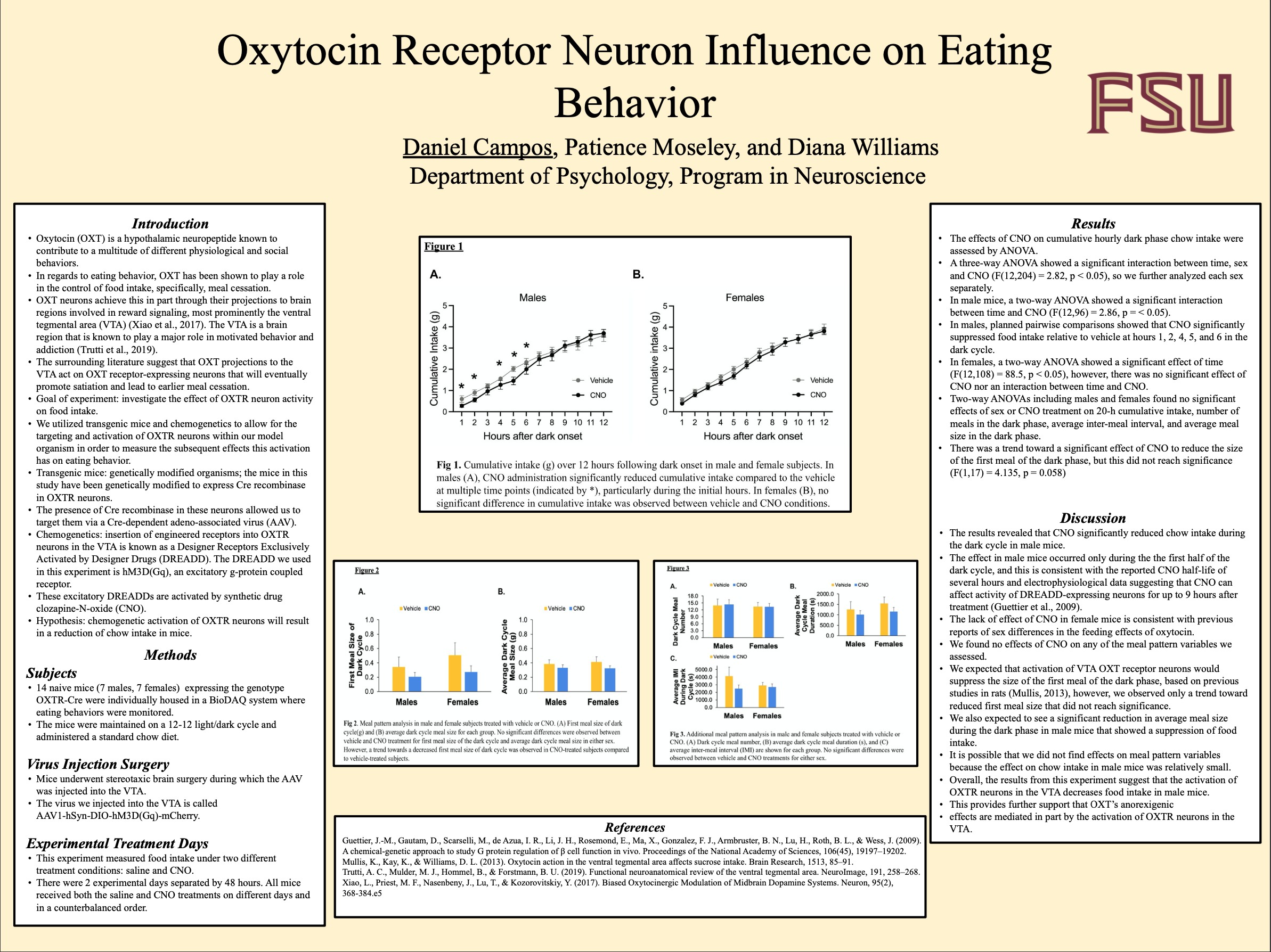Research Symposium
25th annual Undergraduate Research Symposium, April 1, 2025
Daniel Campos Poster Session 2: 10:45 am - 11:45 am/ Poster #97

BIO
Daniel was born and raised in Miami, Florida. Graduating in 2025 with a degree in Behavioral Neuroscience, his career goals include obtaining an MD degree in order to pursue a career as a clinician and medical scientist.
Oxytocin Receptor Neuron Influence on Eating Behavior
Authors: Daniel Campos, Diana WilliamsStudent Major: Behavioral Neuroscience
Mentor: Diana Williams
Mentor's Department: Neuroscience Mentor's College: Psychology Co-Presenters:
Abstract
An issue we face in western countries pertains to pathologies caused by a dysregulation of food intake. Research on the neurobiology that mediates eating behavior is essential for developing effective treatments for these pathologies. Oxytocin (OXT) is a hypothalamic neuropeptide most well known for its role in social and reproductive behaviors. OXT neurons also affect eating behavior via projections to several areas of the brain including the ventral tegmental area (VTA), which is most well known for its role in reward. This study investigates the role of oxytocin receptor (OXTR)-expressing neurons in the VTA in eating behavior in mice using chemogenetics. Mice expressing Cre recombinase in OXTR neurons received virally-mediated gene therapy to induce an excitatory Designer Receptor Exclusively Activated by Designer Drugs (DREADD) in VTA OXTR neurons. When activated by the drug clozapine-N-oxide (CNO), these receptors depolarize the neurons. We examined the food intake effects of this OXTR neuron activation compared with vehicle treatment. Results revealed that the activation of VTA OXTR neurons significantly suppressed chow intake in male mice but not in females, consistent with previously observed sex differences in oxytocin-mediated eating behaviors. This study provides support for the role of OXTR neurons in the VTA in the modulation of eating behaviors and therefore may provide insight into the biological mechanism that mediates OXT’s reduction in eating behavior. Further research into understanding the neural circuitry that mediates OXT’s effects could potentially lead to the development of pharmacological treatments for pathological eating behaviors.
Keywords: Oxytocin, neurons, receptors, eating, neuroscience

